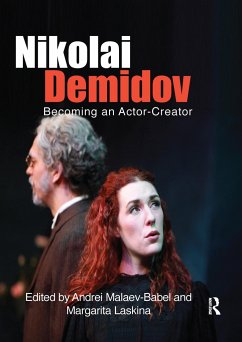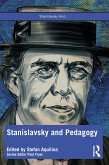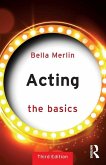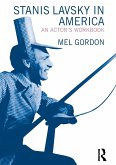At the time of his death, Stanislavsky considered Nikolai Demidov to be 'his only student, who understands the System'. Demidov's incredibly forward-thinking processes not only continued his teacher's pioneering work, but also solved the problems of an actor's creativity that Stanislavsky never conquered.
Despite being one of the original teachers of the Stanislavski system, Demidov's name was little known either in his native Russia or the wider world until the turn of the 21st Century. Since then, his extensive works have been published in Russian but are yet to find their way to the English-speaking world. His sophisticated psychological techniques, stimulation of creativity, and methods of developing the actors themselves are now gaining increasing recognition.This book brings together Demidov's five volumes on actor training. Supplementary materials, including transcriptions of Demidov's classes, and notes and correspondence from the author make this the definitive collection on one of Russian theatre's most important figures.
Despite being one of the original teachers of the Stanislavski system, Demidov's name was little known either in his native Russia or the wider world until the turn of the 21st Century. Since then, his extensive works have been published in Russian but are yet to find their way to the English-speaking world. His sophisticated psychological techniques, stimulation of creativity, and methods of developing the actors themselves are now gaining increasing recognition.This book brings together Demidov's five volumes on actor training. Supplementary materials, including transcriptions of Demidov's classes, and notes and correspondence from the author make this the definitive collection on one of Russian theatre's most important figures.
"Deserves to become the backbone of every actor's library."
- Stanislavsky Studies
"Andrei Malaev-Babel and Margarita Laskina have taken on the formidable but necessary task of introducing Nikolai Demidov to the English-speaking world; and it is a major achievement. These pages are fresh, conversational, and, at times, provocatively categorical. Stimulating reading, they are illuminated by Malaev-Babel's impeccable research."
- Professor Maria Shevtsova, Goldsmith, University of London
"Long repressed, Demidov's radical ideas about acting are now being re-discovered and implemented in Russia. Now, through this extraordinary volume, we who read English over Russian can begin the exploration of these critical insights and lessons, and add a new name to the roster of Stanislavsky's rebellious sons: Nikolai Demidov. I believe this book may ultimately alter the course of actor training in the west."
- Professor David Chambers, Harvard University and Yale School of Drama
"Demidov, and in turn Malaev-Babel, invite us to enter into a larger system, one that purports to articulate a pathway to creative psychology that complements and enlarges Stanislavski's System. Given the years Demidov spent challenging and expanding Stanislavski's System, the subsequent decades of suppression by the Soviet regime, and the increasing globalization of Stanislavski as the actor's foundation, such an invitation is more than welcome."
- Dr. Bryan Brown, University of Exeter
- Stanislavsky Studies
"Andrei Malaev-Babel and Margarita Laskina have taken on the formidable but necessary task of introducing Nikolai Demidov to the English-speaking world; and it is a major achievement. These pages are fresh, conversational, and, at times, provocatively categorical. Stimulating reading, they are illuminated by Malaev-Babel's impeccable research."
- Professor Maria Shevtsova, Goldsmith, University of London
"Long repressed, Demidov's radical ideas about acting are now being re-discovered and implemented in Russia. Now, through this extraordinary volume, we who read English over Russian can begin the exploration of these critical insights and lessons, and add a new name to the roster of Stanislavsky's rebellious sons: Nikolai Demidov. I believe this book may ultimately alter the course of actor training in the west."
- Professor David Chambers, Harvard University and Yale School of Drama
"Demidov, and in turn Malaev-Babel, invite us to enter into a larger system, one that purports to articulate a pathway to creative psychology that complements and enlarges Stanislavski's System. Given the years Demidov spent challenging and expanding Stanislavski's System, the subsequent decades of suppression by the Soviet regime, and the increasing globalization of Stanislavski as the actor's foundation, such an invitation is more than welcome."
- Dr. Bryan Brown, University of Exeter








